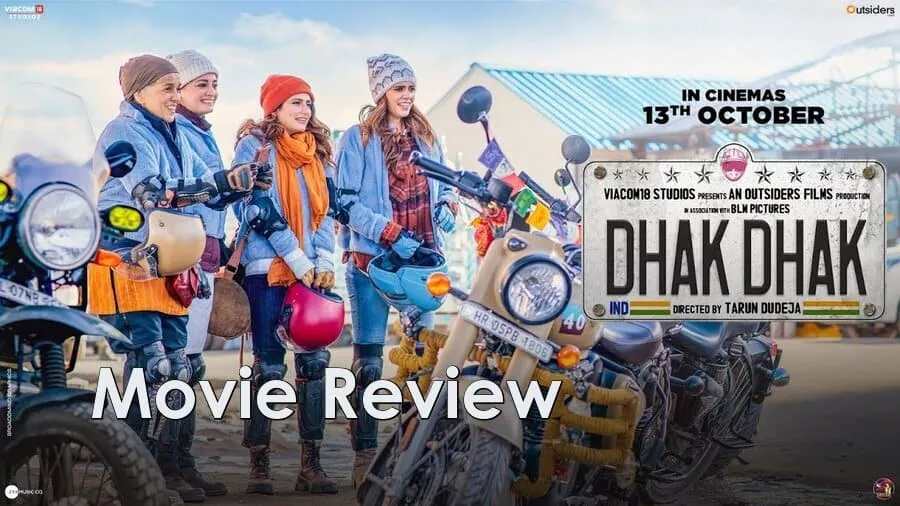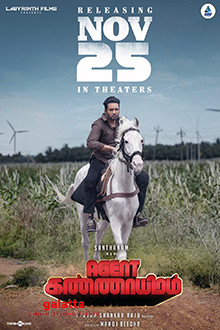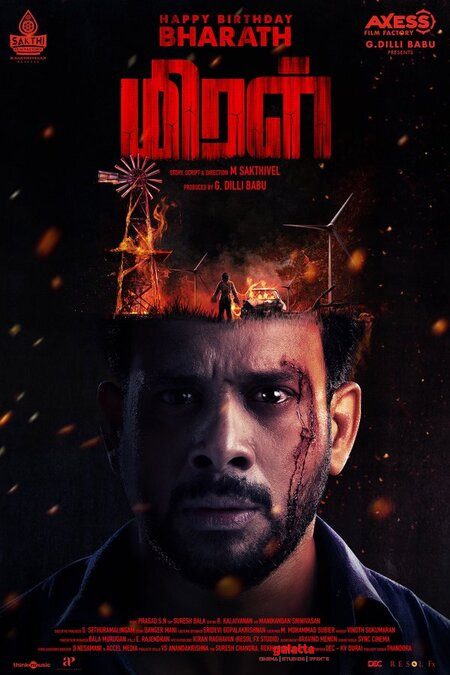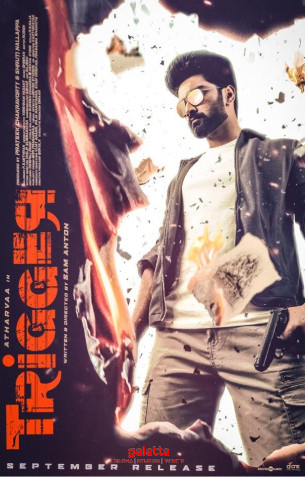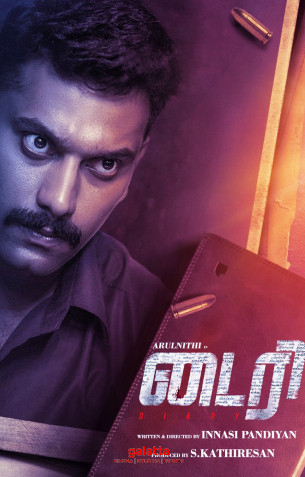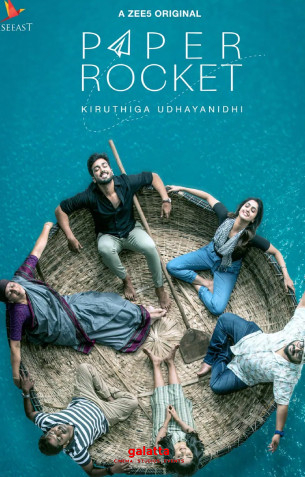Dhak Dhak Movie Cast & Crew
Four women decide to undertake a bike ride to Khardung la, one of the highest motorable roads in the world. Along this road trip, they bicker and they bond and they receive life lessons, sometimes from something as simple as a butterfly emerging from its pupa. This is the broad template of this sub-genre, so there’s nothing that can be done about that. But the opening is interesting. Instead of setting up these women and their lives, Tarun Dudeja’s film plunges us into the bike ride, and quickly establishes the four characters’“types”. Sanjana Sanghi (as Manjari) plays the easily scared one. Fatima Sana Shaikh (Sky) is the alpha female of the group, and she’s the scarred, bitter one. Ratna Pathak Shah (Mahi) is the maternal one, and Dia Mirza (Uzma) is an enterprising Muslim housewife whose spark has vanished over time, thanks to a bad marriage.
And then, we go back in time to the “jab they met” phase. We get individual stories about oppression. For instance, Mahi’s daughter is not impressed that Mahi is being interviewed about being a biker, or that this interview is being shot beside a posh hotel. All she wants is her mother to show up for a get-together with her famous dahi bhalle. Uzma, too, is reduced to a cooking machine. We learn why Sky is so bitter, and we learn what scarred her. We get to see a slice of Manjari’s life, which involves marriage. And so forth. It’s all ultra-generic stuff. Nothing really pulls us into these characters, their lives. Each of them has a seed of something that could sprout into an entire movie, but in getting compressed, all we are left with is the feeling of “been there, done that”.
The problem with Dhak Dhak is not that it is filled with clichés. When Uzma protests that she will not be able to go along (“main nahin jaa paoongi”), you know that she will relent. The trailer has already told us that. When Sky decides to abandon the expedition, you know she will return. When calamities occur – whether a flood, or illness – you know they are just pit stops along the way, and that the destination will be reached at any cost. The problem is that the story is told in the broadest strokes, and there’s very little that reaches out and touches you. I was moved by something Uzma says, that she and her husband changed as people. Sometimes that’s all the explanation you need for a marriage that no longer works. The simplicity and truthfulness of the statement, and the way Dia Mirza delivers it, is one of the few high points.
Another nice stretch is when Sky keeps going back and forth between an event in the present and something in the past. Her whole life appears to be one big series of one bad thing after another. Everything seems interconnected in a way that makes it seem that she just cannot catch a break. But the rest of the film is filled with filler-bits like the four women giggling about orgasms and condoms, or joining some random party. These sequences could have been axed for more serious talk between these women, and not just Instragrammy quotes like: “Yeh duniya ek number ki MC hai. Jo darta hai usey aur daraata hai.” In this subgenre of the “finding yourself” movie, it’s the quality of the incidents, the quality of the writing that matters. The predictable Dhak Dhak just never finds its pulse.
